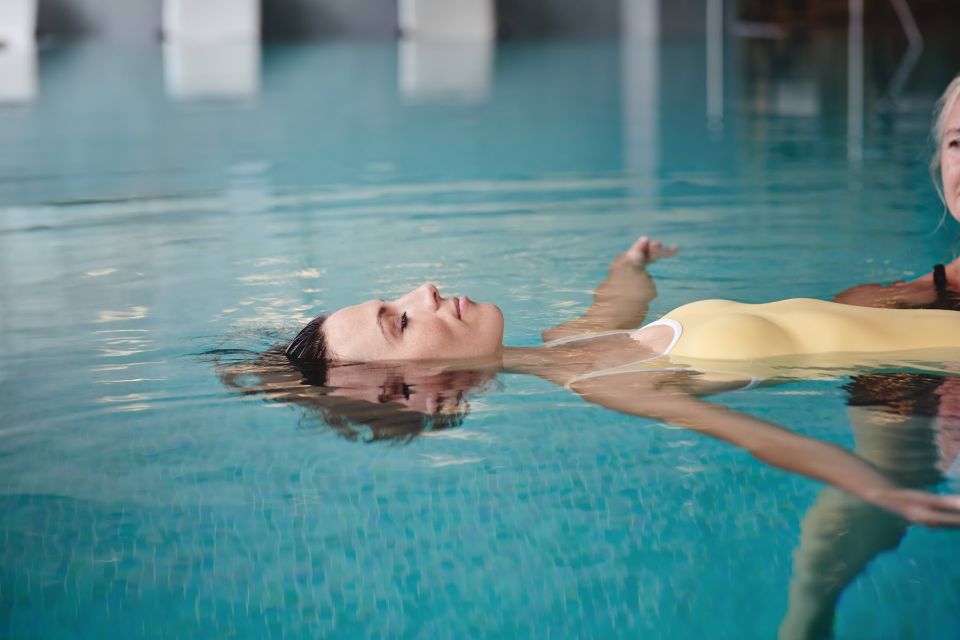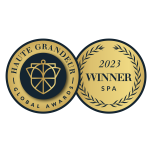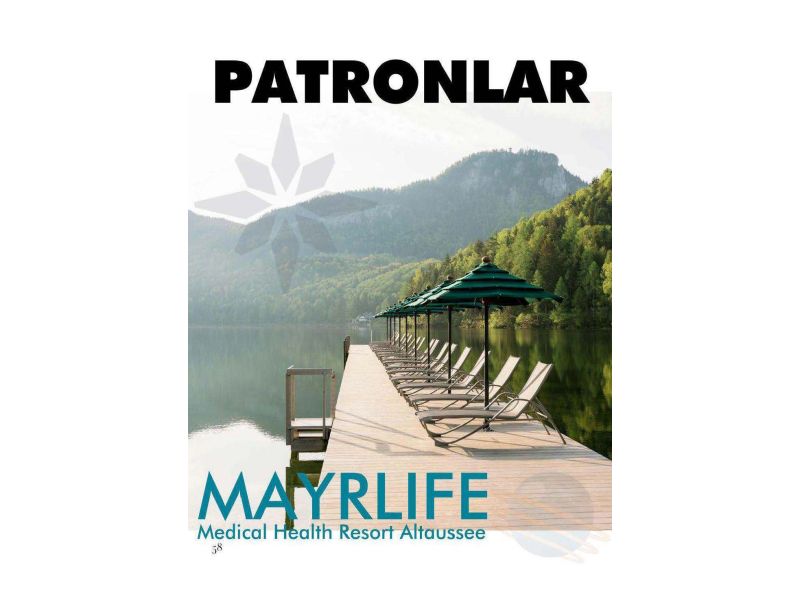How to recognize and effectively reduce stress
Stress has by now become just as deeply embedded in our daily language as being constantly online has become a part of our everyday life. And these two factors are certainly connected when it comes to reducing this ever-present stress. The crux of the issue: Our fast-paced, information-flooded age is making it ever more difficult for us to recognize when it’s too much. Read on to find out how you can become more aware of your own individual level of stress and which methods truly help to reduce stress.

Stress as such is not a phenomenon of our time, however, the term itself has only been around for roughly 60 years. But, of course, “stressful situations” have existed since early on, be it back when the “fight or flight” mechanisms still applied or when humans were attempting to conquer new and wild terrain. In any case, by now it has become the norm for us to experience too much stress, which is why the term mainly has a negative connotation (so-called distress). In this article, we went into depth on the fact that stress is something entirely natural and is only perceived as negative as a result of our subjective evaluation.
The fact is that our experience of stress has changed drastically over the years. Thanks to our phones, we are now available around the clock, and each day on countless news pages, blogs and social media sites, the Internet floods us with information that we rarely actively seek out. Instead, we are practically force-fed this information in “news feeds”.

Added to this is the permanent urge to have to announce ourselves: Status updates, social media stories and messenger services, such as WhatsApp, encourage our need to share with the world – even if it is often “only” our own family or friend circle. “But that’s not all,” knows Birgit Reja, trained psychologist at MAYRLIFE. “This is compounded by the need to fulfil one’s desires, to experience a fulfilling partnership, to shape our own standard of living in accordance with our wishes and to pursue our hobbies. Constantly striving for all areas of life to be optimal can in fact be stressful and can overwhelm us in the long run,” explains the expert. There are several good methods for effectively reducing the flood of information in our personal lives. Nevertheless, it is still very easy to fall into the “stress trap”, given that “many people don’t even realize how stressed they are,” Birgit Reja reveals from her day-to-day work experiences. While this excessive strain may not have made its way into our consciousness yet, the body, on the other hand, sends various signals right from the start. “Biofeedback methods, such as heart rate variability and resting heart rate measurements, can provide rapid insight into when it is simply too much at once. But a certain amount of self-reflection is also important,” explains the psychologist.
Further possibilities for becoming aware of one’s own stress level can include:
- Indications from one’s social environment
- Inability to relax – one is fundamentally lacking a sense of peace, leisure and relaxation
- The feeling of never having enough time
- Poor sleep
- Unease and anxiety
- A permanently bad mood
In addition to the biofeedback techniques, which, for example, conventional fitness watches have by now become very good at performing, relief can also be found in mindfulness training and methods for self-reflection, such as journaling, which has been recently undergoing a surge of popularity. This method is centered around one’s own perception and recognizing one’s own needs.
To round this out, however, tried and tested stress management methods such as Jacobson’s progressive muscle relaxation, meditation, qigong, tai chi and yoga can help to reduce or even prevent the stress that is perceived as negative. After all, all these different methods not only reduce the stress that has already become too much, but also equip us to be able to better deal with future moments of stress, such as information overload, the hectic pace of daily life or time pressure. They improve what is known as our stress tolerance.

Effectively reducing stress
Stress as we understand it today is, therefore, a result of our fast-paced information age. What is the best way to get it under control? “Using our breath,” Birgit Reja tells us, short and to the point. “When we observe ourselves and how we are breathing, we are quickly able to recognize what mode we are currently operating in. Shallow breathing that occurs in the upper part of the airways always indicates that I’m in a state of activity, or rather that I’m tense. Deep breathing that goes all the way to the stomach, on the other hand, is a sign that I’m currently in relaxation mode. It’s no coincidence that, without fail, we always take a deep breath when a negatively perceived stressful situation is finally over,” the psychologist continues.
What makes deep breathing so relaxing is the fact that we not only breathe in more deeply, but also breathe out for longer. One effective method, for example, is the 4-7-8 breathing technique, which involves breathing in for a count of 4, holding the breath while you count to 7, and finally breathing out for a total of 8. This effectively alleviates feelings of stress such as being overwhelmed, restless or anxious. “With our guests, I notice that breathing exercises coupled with the necessary mindfulness are the best methods for quickly inducing relaxation,” explains Birgit Reja from her everyday experiences at MAYRLIFE.
But even things as simple as reading a book can also have a very relaxing effect on us. The health specialist knows why: “With videos, the editing and playback frequency are predetermined. This often overwhelms our senses. While reading, on the other hand, I can determine the speed myself and can therefore go entirely at my own rhythm.” What is more, the way our brain functions is, in essence, very simple. “It loves structure! Structure gives us the clarity necessary to mentally go into greater depth in circumstances or situations, which ultimately makes us able to perform better.”
“The good news is, that our inner balance, or the path that leads there, can be trained.”
Reducing stress with our “inner balance”
You’ve surely heard of it, the oh-so-popular inner balance, that centered state in which everything is easier and we are able to be our own lighthouse in the storm. But how do we attain it and how do we recognize it once we have? Birgit Reja describes it as the feeling of being connected to ourselves. If we literally sense that we are at one with ourselves, then we have found our own inner balance. The tricky part is that this feeling comes rather grudgingly to the modern-day human, and disappears even faster than it came. “The good news is,” Birgit Reja reassures us, “that our inner balance, or the path that leads there, can be trained.” Either with the previously mentioned stress management methods, such as yoga, tai chi and so on, or also using simple breathing exercises such as the above-described conscious deep breathing.

Now, this is often easier said than done, given that naturally, finding our own inner balance is far more effortless when in a composed state of mind than during stressful times or once we’re already overwhelmed. Yet it is precisely during these moments that finding our way back to inner balance is most useful. “Create a feeling of security for yourself,” advises Ms. Reja and further expounds: “If it simply all gets too much, lean against a tree and take deep breaths. As simple as it sounds, it really is that effective and can provide a lifeline in times of distress.” Only once we feel safe and secure can our body and mind come to rest – and accordingly let us know what might be a further important step in managing stress or effectively softening the blow of further potential stress. American neuroscientist Steven Porges describes this in his polyvagal theory, which depicts the development of the autonomic nervous system in vertebrates and the generation of social behavior. Among other things, the theory states that we can only interact with others once we feel secure. The feeling of security, therefore, is the basis for all communication.
Incidentally, a stay at MAYRLIFE can also contribute towards effectively reducing stress, since as part of a MAYRLIFE program, both body and mind are activated in a positive manner. Interval fasting, intestinal cleansing and a diverse range of treatments such as Salin salt therapies, cold stimuli or abdominal massages trigger “good” stress (so-called eustress) within our organism. This is proven to activate the body’s own self-healing powers and also strengthens our mental resilience. The specially developed MAYRLIFE Stress Control Program is designed to bring daily stress back under control in a targeted manner, to reduce symptoms of stress and potentially also to treat the causes thereof.
Have we piqued your curiosity? We look forward to hearing from you!
Awarded 'Best Medical Spa Worldwide'

World Luxury Spa Award 2023
World’s Best Luxury Medical Spa

Seven Stars Luxury Hospitality and Lifestyle Awards 2022
Best Medical Wellness & Longevity Resort

Condé Nast Readers’ Choice Awards 2022
Best Destination Spa

European Health & Spa Award 2023
Best Medical Resort

Haute Grandeur Global Awards 2023
Best Health & Wellness Spa in Austria


